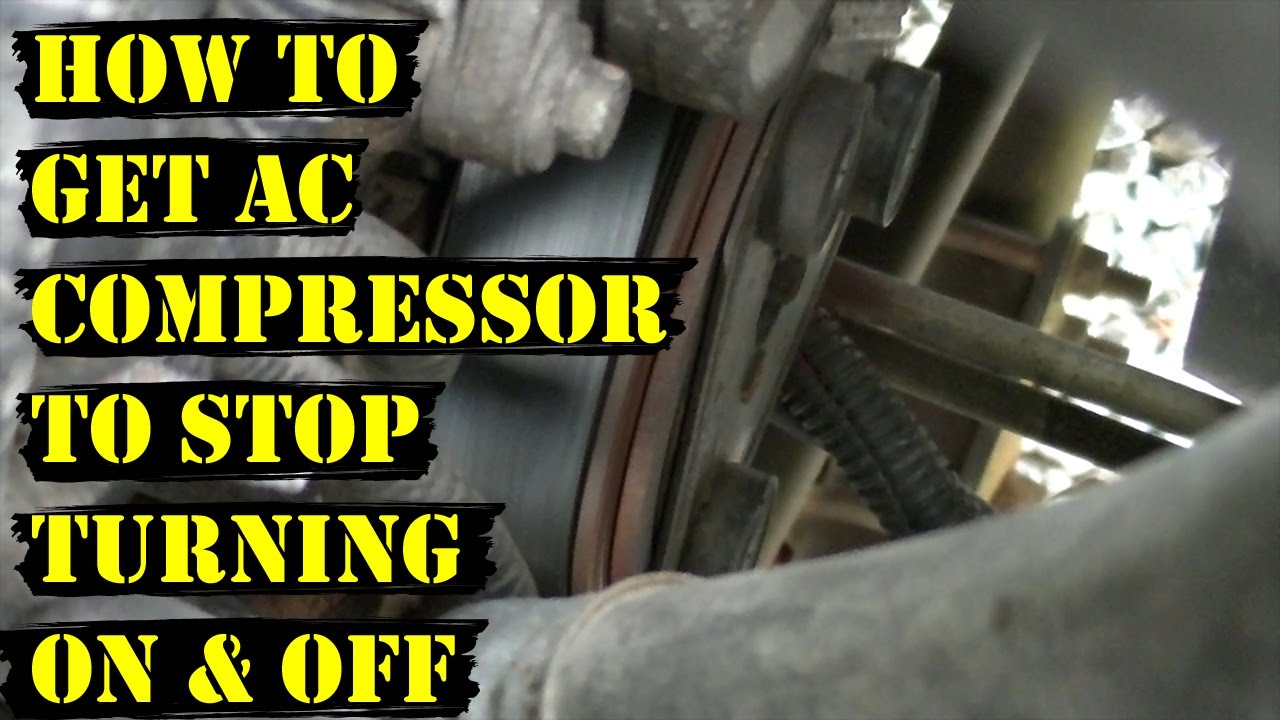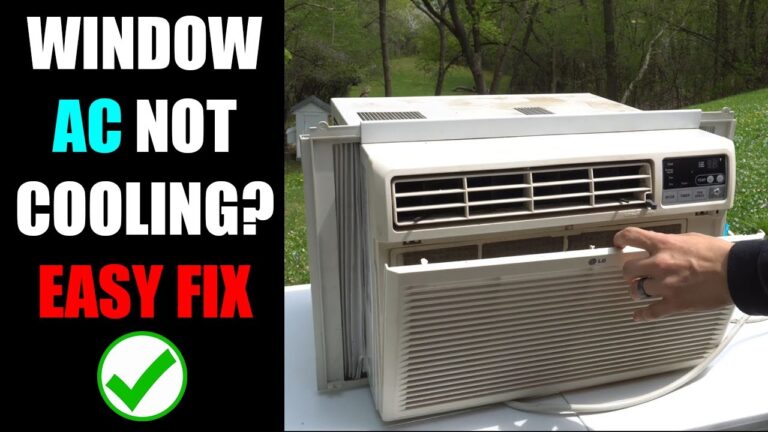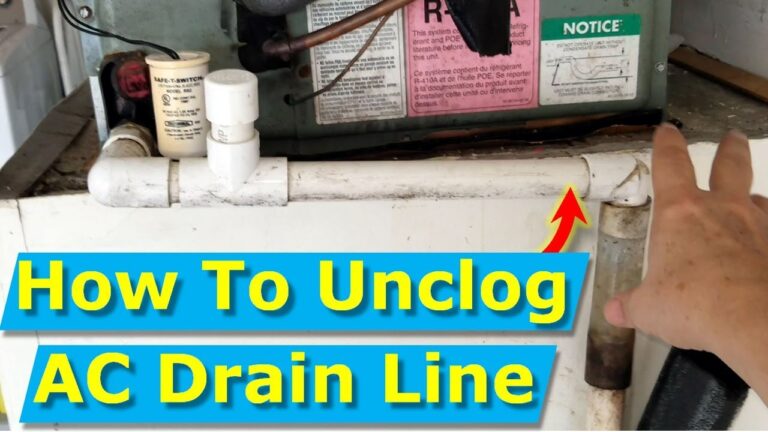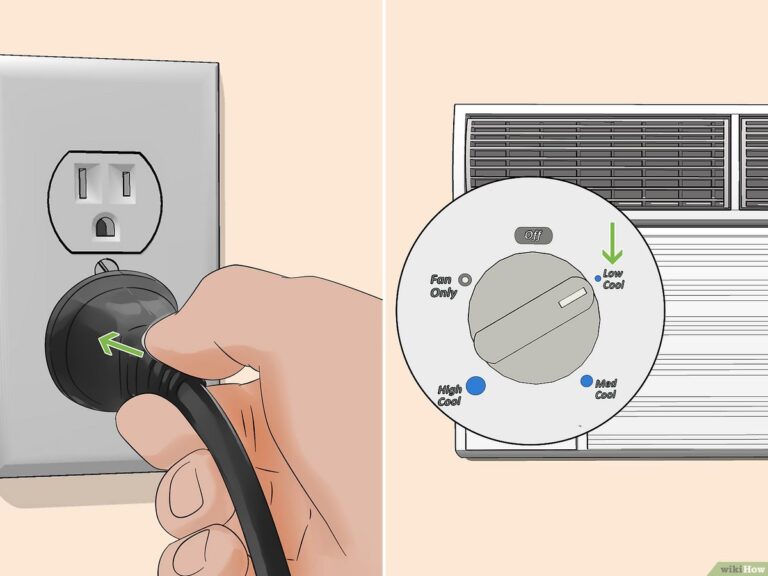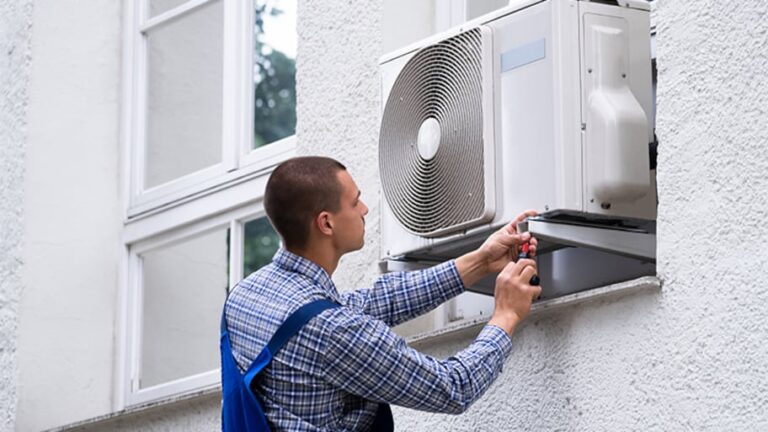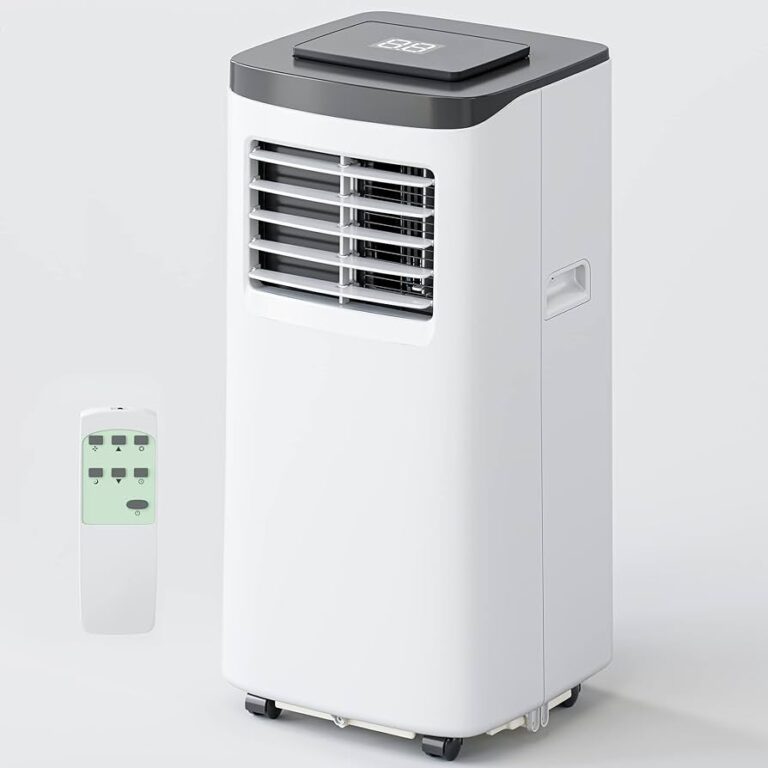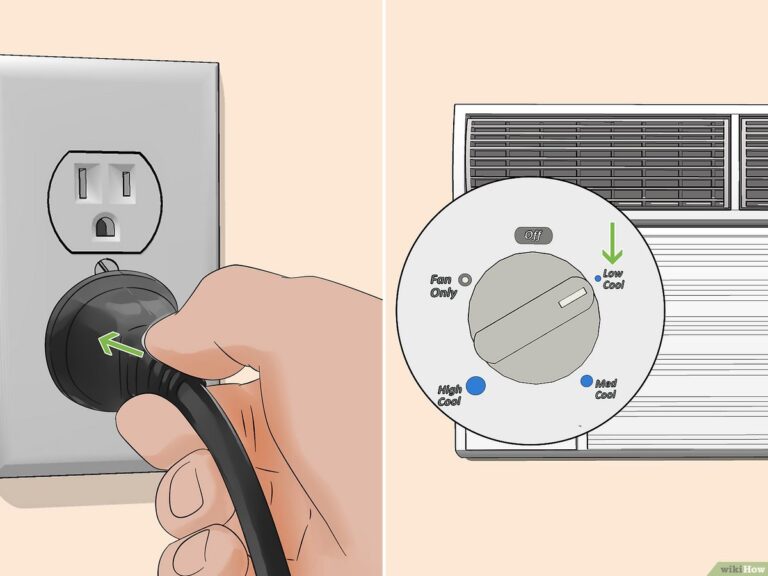Why Does My AC Compressor Keep Turning On And Off? Troubleshoot Now
Your AC compressor keeps turning on and off due to short cycling. This issue can stem from various underlying problems.
Short cycling in an AC system affects its efficiency and longevity. Common causes include a malfunctioning thermostat, low refrigerant levels, or electrical issues. Dirty air filters or evaporator coils can also lead to this problem. Short cycling stresses the compressor, leading to potential breakdowns and higher energy bills.
Identifying and addressing the root cause promptly is crucial. Regular maintenance and timely repairs can prevent short cycling and ensure your AC system operates smoothly.
Common Causes
Your AC compressor keeps turning on and off. This can be frustrating. There are common causes for this issue. Understanding these can help you fix it.
Thermostat Issues
A faulty thermostat can cause your AC compressor to turn on and off frequently. The thermostat may not be reading the temperature correctly. If the thermostat is in direct sunlight, it might give false readings. This can make the AC think your home is warmer than it is. A thermostat in poor condition may also give incorrect signals. These issues lead to short cycling of the compressor.
Dirty Air Filters
Dirty air filters can also cause your AC compressor to turn on and off. When filters are clogged, airflow is restricted. This makes the AC work harder to cool your home. As a result, the compressor may overheat. Overheating causes the compressor to shut down to protect itself. Regularly cleaning or replacing air filters can prevent this issue.
| Common Causes | Details |
|---|---|
| Thermostat Issues | Faulty thermostat, direct sunlight, poor condition |
| Dirty Air Filters | Clogged filters, restricted airflow, overheating |
Electrical Problems
Electrical problems are common reasons why your AC compressor keeps turning on and off. These issues can disrupt the normal operation of your AC unit, leading to frequent cycling. Let’s explore some key electrical issues that might be causing this problem.
Wiring Faults
Wiring faults can cause your AC compressor to turn on and off. Damaged or loose wires can interrupt the electrical flow. This prevents the compressor from running smoothly. Check for any visible damage to the wires. If you find any, fix them immediately.
Improperly connected wires can also lead to issues. Make sure all connections are secure. Use a multimeter to check the continuity of the wires. This tool can help identify any breaks in the circuit.
Another possible issue is corrosion. Corroded wires can cause poor connections. Clean any corroded areas with a wire brush. Replace wires if they are too damaged.
Blown Fuses
A blown fuse can stop your AC compressor from working. Fuses protect your system from electrical surges. When a fuse blows, it cuts off the power supply. This can cause the compressor to turn on and off.
Check the fuse box for any blown fuses. Replace any that are damaged. Use the correct type and rating of fuse. Incorrect fuses can cause further problems.
Regularly inspect the fuse box to ensure everything is in order. Keeping fuses in good condition can help maintain your AC system’s performance.
Consider using a table to keep track of your fuses and their conditions:
| Fuse | Condition | Action |
|---|---|---|
| Fuse 1 | Good | No action needed |
| Fuse 2 | Blown | Replace |
| Fuse 3 | Good | No action needed |
By addressing these electrical problems, you can help ensure your AC compressor runs smoothly. Regular maintenance and inspections are key to preventing issues.
Refrigerant Levels
One common reason your AC compressor keeps turning on and off is due to refrigerant levels. Maintaining the right refrigerant level is crucial for the efficient functioning of your air conditioning system. Both low and high levels can cause issues. Let’s dive into the details.
Low Refrigerant
Low refrigerant levels can cause the AC compressor to cycle frequently. This issue often arises due to leaks in the system. Leaks can occur in various parts, including the evaporator coil or refrigerant lines.
- Signs of Low Refrigerant:
- Cooling inefficiency
- Hissing or bubbling noises
- Ice formation on coils
Addressing low refrigerant levels involves repairing the leaks and recharging the system. Ignoring this issue can lead to compressor damage.
Overcharging
Overcharging the refrigerant can also cause the compressor to turn on and off. Too much refrigerant creates excess pressure in the system. This can trigger the pressure switch to turn off the compressor.
- Signs of Overcharging:
- High energy bills
- Poor cooling performance
- Loud operation noises
To fix overcharging, a professional technician should adjust the refrigerant levels. Ensuring the correct amount of refrigerant is critical for your AC’s longevity.
| Issue | Signs | Solution |
|---|---|---|
| Low Refrigerant |
|
Repair leaks, recharge refrigerant |
| Overcharging |
|
Adjust refrigerant levels |

Credit: www.supertechhvac.com
Compressor Overheating
The AC compressor is a crucial part of your air conditioning system. If it keeps turning on and off, it may be due to overheating. Overheating can cause significant damage to your AC unit. Let’s explore some common reasons for compressor overheating.
Insufficient Airflow
Insufficient airflow can make the compressor overheat. This happens when air can’t move freely. The compressor then works harder and gets too hot.
Here are some reasons for insufficient airflow:
- Dirty air filters
- Blocked vents
- Closed registers
Check and clean your air filters regularly. Make sure vents and registers are open. This will help keep your compressor cool.
Blocked Condenser
A blocked condenser can also cause overheating. The condenser releases heat from your home. If blocked, it can’t do its job well.
Common causes of a blocked condenser include:
- Debris like leaves and dirt
- Grass clippings
- Nearby plants or shrubs
Keep the area around the condenser clear. Clean it regularly. This ensures it can release heat properly.
| Reason | Solution |
|---|---|
| Dirty air filters | Clean or replace filters |
| Blocked vents | Clear any obstructions |
| Debris around condenser | Remove leaves and dirt |
By addressing these issues, you can prevent compressor overheating. This will help your AC system run smoothly and efficiently.
Sensor Malfunctions
Is your AC compressor turning on and off frequently? This problem can be annoying. One common cause is sensor malfunctions. Sensors help regulate your AC system. When they fail, your AC behaves erratically. Let’s explore two main sensor issues.
Faulty Thermostat Sensor
A faulty thermostat sensor can cause your AC compressor to act up. The thermostat sensor measures the room temperature. If it malfunctions, it sends wrong signals to your AC unit. This makes the compressor switch on and off unexpectedly.
- Check if the sensor is clean.
- Ensure it is securely connected.
- Replace the sensor if it’s damaged.
Misplaced Sensor
A misplaced sensor can also disrupt your AC’s function. The sensor should be near the evaporator coil. If it moves away, it misreads the temperature. This causes the AC compressor to cycle incorrectly.
- Locate the sensor near the evaporator coil.
- Secure it in place to avoid movement.
- Adjust its position if needed.
| Sensor Issue | Solution |
|---|---|
| Faulty Thermostat Sensor | Clean, secure, or replace the sensor. |
| Misplaced Sensor | Reposition and secure the sensor. |
Mechanical Failures
Mechanical failures are a common reason why your AC compressor keeps turning on and off. These failures can disrupt the normal functioning of your air conditioning unit. Below, we explore two main mechanical issues: worn out components and motor issues.
Worn Out Components
Over time, the components of your AC unit can wear out. This can cause the compressor to cycle on and off. Some parts that often wear out include:
- Belts – They can become loose or cracked.
- Bearings – These can wear down and cause friction.
- Valves – They may fail to open or close properly.
Regular maintenance can help identify and replace these worn components. This can prevent the compressor from turning on and off frequently.
Motor Issues
The motor is a crucial part of the AC unit. If the motor fails, the compressor may turn on and off. Common motor issues include:
- Overheating – The motor can overheat and shut down.
- Electrical Problems – Faulty wiring can disrupt motor function.
- Motor Burnout – The motor may burn out due to wear and tear.
Addressing motor issues promptly is essential. It ensures your AC unit runs smoothly and efficiently.
System Short Cycling
System Short Cycling is a common issue that many homeowners face. Your AC compressor turning on and off frequently can cause discomfort and higher energy bills. Understanding the reasons behind this can help you find solutions.
Improper Sizing
An improperly sized AC unit can lead to short cycling. If your AC is too large, it will cool the home quickly but will not remove humidity effectively. This causes the system to turn on and off frequently.
| AC Size | Impact |
|---|---|
| Too Large | Cools quickly, high humidity |
| Too Small | Struggles to cool, runs constantly |
Leaky Ducts
Leaky ducts can also cause short cycling. When ducts have leaks, the cool air escapes before it reaches the rooms. This makes the AC work harder to maintain the temperature, causing it to turn on and off frequently.
- High energy bills
- Inconsistent cooling
- Increased wear and tear
Fixing leaks in the ductwork can solve this issue. Sealing ducts will help your system run efficiently and reduce short cycling.

Credit: www.youtube.com
Diy Troubleshooting Tips
Is your AC compressor turning on and off too often? This issue, known as short cycling, can be frustrating and costly. Before calling a professional, try some DIY troubleshooting tips to identify and possibly fix the problem. Short cycling can often be resolved with some basic inspections and adjustments.
Inspecting Air Filters
Dirty air filters can cause your AC compressor to short cycle. Blocked filters restrict airflow, making your compressor work harder and turn on and off more frequently.
To inspect your air filters:
- Turn off your AC unit.
- Locate the air filter compartment.
- Remove the air filter.
- Hold it up to a light source. If light doesn’t pass through, it’s dirty.
- Replace with a new, clean filter if necessary.
Make sure to replace your air filters every 1-3 months to keep your AC running smoothly.
Checking Thermostat Settings
Incorrect thermostat settings can also lead to short cycling. Ensure the thermostat is set to the right mode and temperature.
To check your thermostat settings:
- Ensure the thermostat is set to “cool” mode.
- Set the temperature at least 5 degrees below the room temperature.
- Check if the “auto” setting is selected for the fan.
- Replace the thermostat batteries if they are low.
If the problem persists, you may need to recalibrate or replace the thermostat.

Credit: www.reddit.com
Frequently Asked Questions
Why Does My Ac Compressor Keep Kicking On And Off?
Your AC compressor may keep kicking on and off due to a dirty air filter, low refrigerant, or thermostat issues. Check and clean the air filter, ensure proper refrigerant levels, and inspect the thermostat settings. If problems persist, contact a professional technician for a thorough diagnosis.
Why Does My Ac Compressor Start And Stop Frequently?
Your AC compressor starts and stops frequently due to issues like refrigerant leaks, dirty coils, or a faulty thermostat. Regular maintenance helps.
How Do I Stop My Ac From Short Cycling?
To stop your AC from short cycling, check the thermostat, clean filters, ensure proper refrigerant levels, and inspect electrical connections. Consult a technician if issues persist.
Conclusion
Understanding why your AC compressor keeps turning on and off is crucial. Regular maintenance can prevent this issue. Addressing problems early saves money and prolongs your AC’s lifespan. Always consult a professional for complex issues. Enjoy a comfortable and efficient cooling experience by keeping your AC in top condition.

